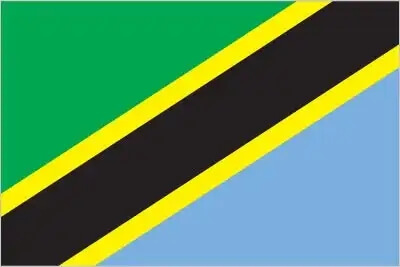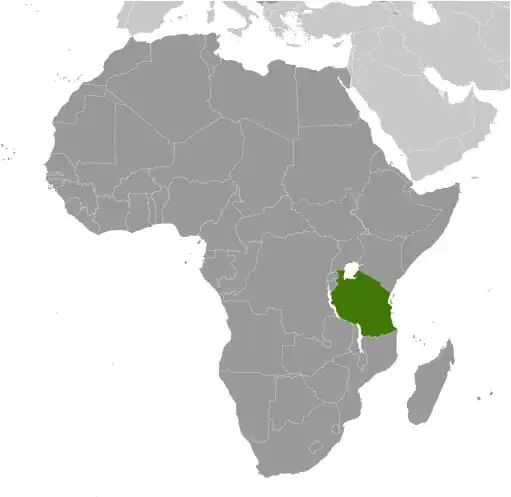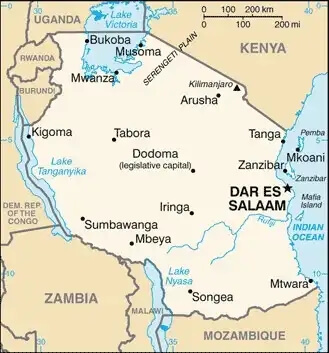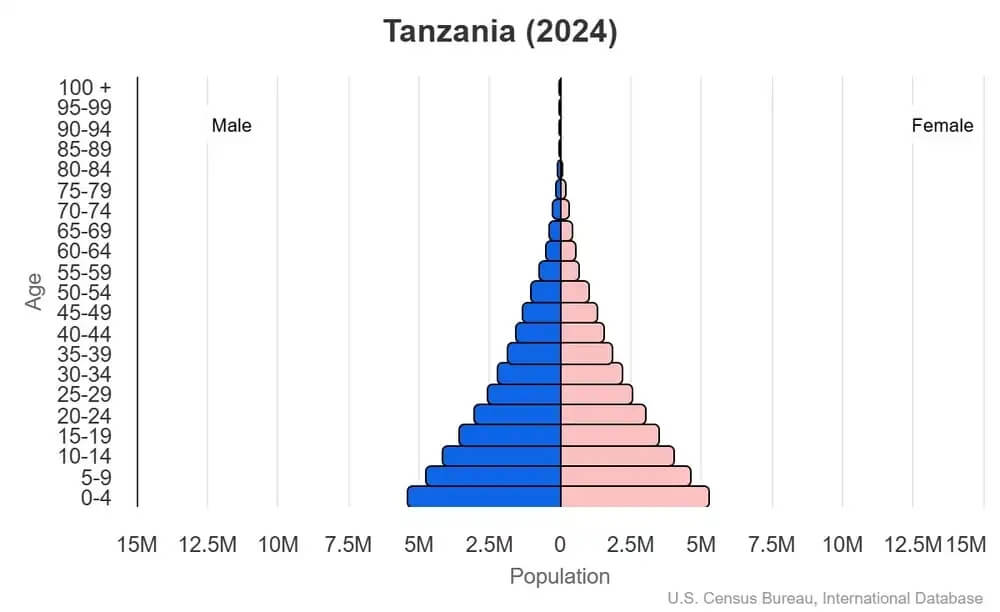World Book
Tanzania
World Book Index
47


With a score of 47, the country is ranked 138th out of 158 countries in the World Book ranking. (more information)
Introduction
Tanzania fell under German rule during the late 19th century as part of German East Africa. After World War I, Britain governed the mainland as Tanganyika. Shortly after achieving independence from Britain in the early 1960s, Tanganyika and Zanzibar merged to form the United Republic of Tanzania in 1964.
Neighboring countries
Burundi - Democratic Republic of the Congo - Kenya - Malawi - Mozambique - Rwanda - Uganda - Zambia
Geography
Area
total: 947,300 sq km
land: 885,800 sq km
water: 61,500 sq km
Climate
varies from tropical along coast to temperate in highlands
Natural resources
hydropower, tin, phosphates, iron ore, coal, diamonds, gemstones (including tanzanite, found only in Tanzania), gold, natural gas, nickel
People and Society
Population
total: 67,462,121 (2024 est.)
Ethnic groups
mainland - African 99% (of which 95% are Bantu consisting of more than 130 tribes), other 1% (consisting of Asian, European, and Arab); Zanzibar - Arab, African, mixed Arab and African
Languages
Kiswahili or Swahili (official), Kiunguja (name for Swahili in Zanzibar), English (official, primary language of commerce, administration, and higher education), Arabic, many local languages
Religions
Christian 63.1%, Muslim 34.1%, folk religion 1.1%, Buddhist <1%, Hindu <1%, Jewish <1%, other <1%, unspecified 1.6% (2020 est.)
Population growth rate
2.72% (2024 est.)
Government
Government type
presidential republic
Capital
name: Dodoma
Executive branch
chief of state: President Samia Suluhu HASSAN (since 19 March 2021)
head of government: President Samia Suluhu HASSAN (since 19 March 2021)
Diplomatic representation in the US
chief of mission: Ambassador Elsie Sia KANZA (since 1 December 2021)
Diplomatic representation from the US
chief of mission: Ambassador (vacant); Chargé d’Affaires Andrew LENTZ (since January 2025)
Economy
Economic overview
emerging lower middle-income East African economy; resource-rich and growing tourism; strong post-pandemic recovery from hospitality, electricity, mining, and transit sectors; declining poverty; stable inflation; gender-based violence economic and labor force disruptions
Real GDP (purchasing power parity)
$246.706 billion (2024 est.)
$233.786 billion (2023 est.)
$222.506 billion (2022 est.)
Real GDP per capita
$3,700 (2024 est.)
$3,600 (2023 est.)
$3,500 (2022 est.)
Exports
$13.98 billion (2023 est.)
$11.986 billion (2022 est.)
$9.874 billion (2021 est.)
Exports - partners
India 15%, UAE 14%, Uganda 12%, South Africa 10%, China 6% (2023)
Exports - commodities
gold, refined petroleum, dried legumes, refined copper, coal (2023)
Imports
$16.059 billion (2023 est.)
$16.674 billion (2022 est.)
$11.61 billion (2021 est.)
Imports - partners
China 32%, India 13%, UAE 9%, Saudi Arabia 5%, Japan 4% (2023)
Imports - commodities
refined petroleum, plastics, garments, fertilizers, wheat (2023)
Human Development Index
The country's Human Development Index (HDI) is 0.555, ranking it 165th out of 193 countries tested. (more information)
World Happiness Report
The World Happiness Report ranked the country 139th out of 158 countries tested with a score of 3.861. (more information)



